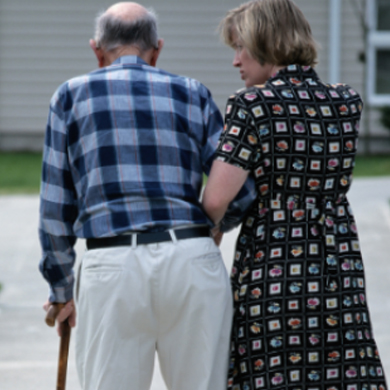
High doses of vitamin D increase the risk of falls in elderly adults, according to new research.
Vitamin D deficiency has been linked to various medical conditions, which can lead to degenerated physical function and increased falls in elderly adults. Therefore, researchers decided to examine whether vitamin D supplementation could improve patients’ lower extremity function and, therefore, reduce falls.
To conduct their study, researchers followed 200 men and women over the age of 70 who had reported a fall within the prior year. At baseline, 58% of patients were vitamin D deficient.
Researchers separated them into three groups: The first group received a low dose of vitamin D (24,000 IU), the second received a high dose of vitamin D (60,000 IU), and the third received a low dose of vitamin D (24,000 IU) with 300 μg of calcifediol.
After 1 year of monthly treatment, patients’ vitamin D levels increased, but the treatment didn’t improve patients’ lower extremity function. In fact, patients in the second and third groups reported about 66% more falls than the first group.
“Although higher monthly doses of vitamin D were effective in reaching a threshold of at least 30 ng/mL of 25-hydroxyvitamin D, they had no benefit on lower extremity function and were associated with increased risk of falls compared with 24,000 IU,” researchers concluded.
Reference:
Bischoff-Ferrari HA, Dawson-Hughes B, Orav EJ, et al. Monthly high-dose vitamin d treatment for the prevention of functional decline: A randomized clinical trial. JAMA Intern Med. Published online January 4, 2016. doi:10.1001/jamainternmed.2015.7148.
Source: Reproduced from GP Clinics Vol 6 No 12, 2016.